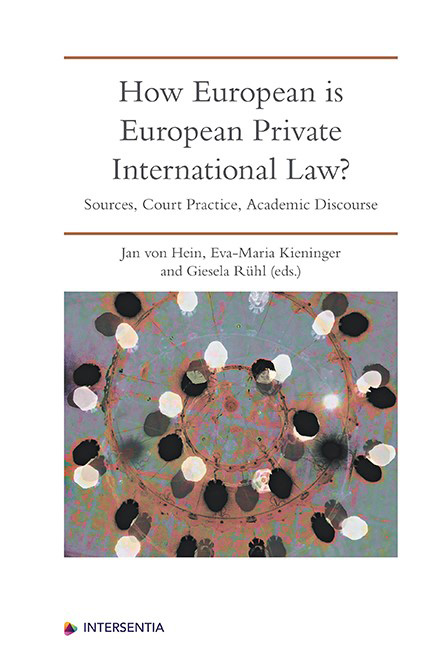The Relationship Between EU Legislation and International Instruments in the Field of Private International Law
Published online by Cambridge University Press: 22 December 2020
Summary
PUTTING EU LEGISLATION INTO CONTEXT
Harmonising Private International Law is a complex enterprise. It involves multiple actors engaged in different processes. Regional harmonisation, as pursued through legislative measures enacted by the European Union on the basis of the competence now provided for in Art. 81 of the Treaty on the Functioning of the European Union (TFEU), is thus one piece of a broader jigsaw.
EU measures in the field of judicial cooperation in civil matters reflect in various ways the efforts deployed by the Union and its Member States on the international plane towards the unification of Private International Law. Some of those measures underlie a concern for the unhindered operation of certain unification conventions, or purport to enhance, among Member States, the effectiveness of particular international regimes. Others, by contrast, aim to turn regional rules into universal standards, and supersede competing international models.
The purpose of this chapter is to illustrate the general patterns of the relationship that EU legislation entertains with international agreements governing jurisdiction, the recognition and enforcement of judgments, international judicial assistance and the law applicable to cross-border situations. The ultimate aim is to explain the growing importance of the external dimension of EU Private International Law and to assess, against that background, the degree of Europeanness of the Union's approach to the regulation of private relationships with a cross-border element.
Three main sets of international instruments will be considered in this chapter, namely agreements concluded by the Union based on the external competence resulting from the combined operation of Arts 81 and 216 TFEU, agreements stipulated by individual Member States in their own right, and agreements equally concluded by Member States but ‘in the interest’ of the Union.
EU AGREEMENTS
The European Union is currently a party to various agreements laying down rules of Private International Law. Some of them are essentially concerned with the unification of Private International Law, like the Lugano Convention of 30 October 2007 on jurisdiction and the recognition and enforcement of judgments in civil and commercial matters, and the Hague Convention of 23 November 2007 on the international recovery of child support and other forms of family maintenance.
- Type
- Chapter
- Information
- How European is European Private International LawSources, Court Practice, Academic Discourse, pp. 19 - 52Publisher: IntersentiaPrint publication year: 2019



